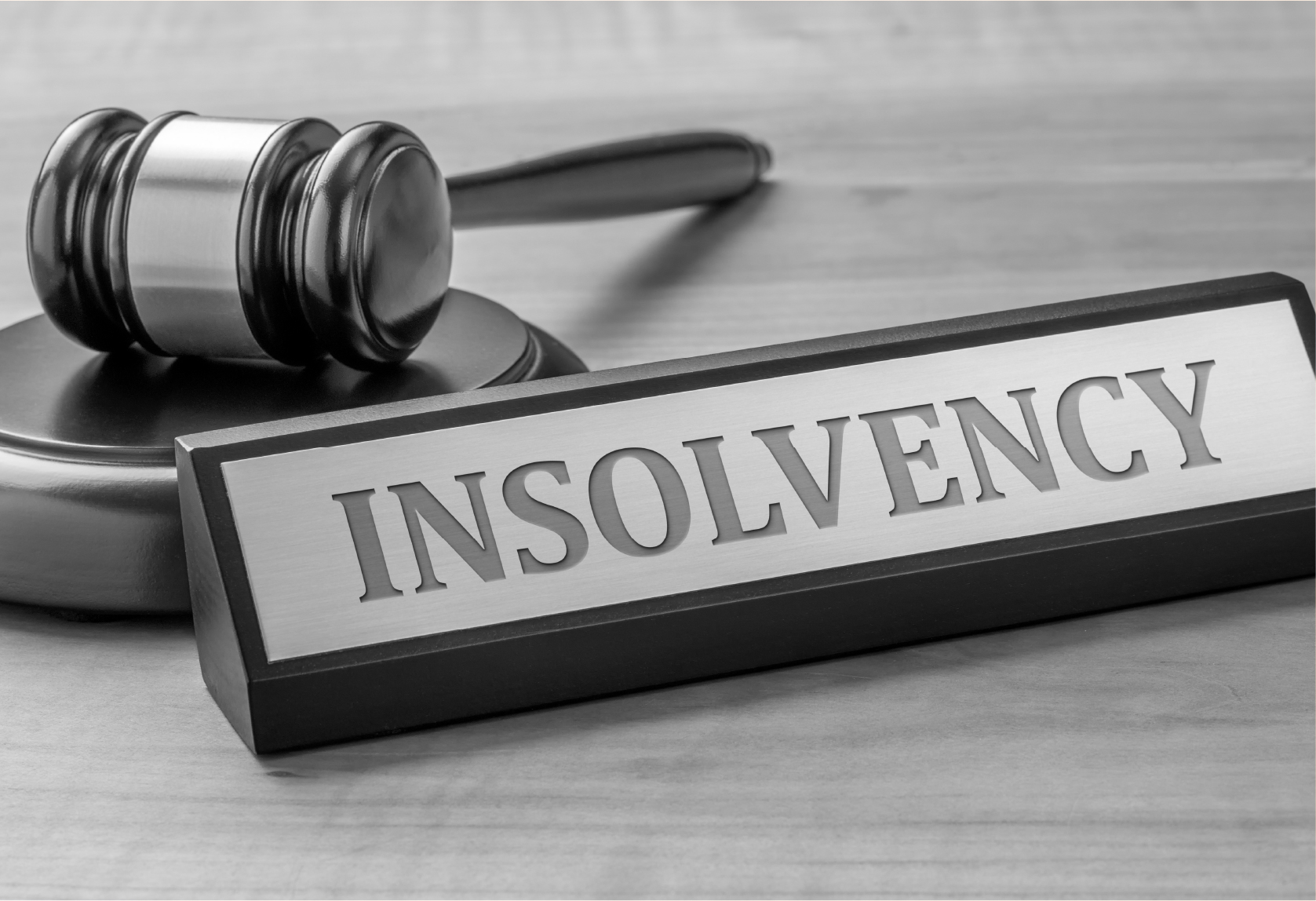Finding the best insolvency lawyers in Sydney can be a vital step in managing your financial situation. Insolvency law is a complex field that requires specialized knowledge and expertise. In this article, we will explore the key aspects of insolvency law, why specialized lawyers are essential, how to define your legal needs, researching insolvency lawyers, evaluating potential lawyers, and the importance of an initial consultation. By following these steps, you can increase your chances of finding the best insolvency lawyer to meet your specific requirements.
Understanding Insolvency Law
Before delving into the process of finding the best insolvency lawyer Sydney, it is crucial to have a basic understanding of insolvency law. Insolvency law governs the legal framework surrounding individuals and businesses that are unable to repay their debts. It involves various procedures such as bankruptcy, liquidation, and voluntary administration.
Insolvency law aims to provide a fair and orderly process for both debtors and creditors. It involves intricate regulations and requires specialized knowledge to navigate successfully.
Insolvency law is a multifaceted area of law that encompasses several key aspects. Understanding these aspects is essential before seeking legal assistance. Let’s take a closer look at some of these key aspects:
- The types of insolvency: Insolvency can occur at both the personal and corporate levels. Personal insolvency refers to situations where individuals are unable to meet their financial obligations, while corporate insolvency pertains to businesses facing financial distress.
- The different procedures and remedies: Insolvency situations call for various procedures and remedies. These may include bankruptcy, where an individual’s assets are liquidated to repay debts, or liquidation, which involves winding up a company’s affairs and distributing its assets to creditors. Voluntary administration is another procedure that allows a financially troubled company to restructure its affairs under the guidance of an administrator.
- The role of insolvency practitioners: Insolvency practitioners play a crucial role in the insolvency process. They are licensed professionals who oversee and manage insolvency proceedings. These practitioners must meet specific legal requirements and act in the best interests of both debtors and creditors.
- The rights and obligations of debtors and creditors: Insolvency processes involve the rights and obligations of both debtors and creditors. Debtors have the right to seek relief from their debts through legal procedures, while creditors have the right to pursue repayment. Understanding these rights and obligations is essential for all parties involved.
Having a basic understanding of these key aspects will enable you to make more informed decisions throughout the process of finding the best insolvency lawyer.
Why Specialized Insolvency Lawyers are Essential
In such a complex and specialized field as insolvency law, it is crucial to engage the services of experienced and specialized insolvency lawyers. These lawyers possess the knowledge and expertise required to navigate the intricacies of insolvency law.
Specialized insolvency lawyers are not only well-versed in the relevant legislation, regulations, and procedures, but they also have a deep understanding of the unique challenges faced by individuals and businesses in financial distress. They can offer tailored advice based on your specific situation, ensuring that your rights and interests are protected throughout the legal process.
Choosing a lawyer who specializes in insolvency law increases your chances of obtaining favorable outcomes during insolvency proceedings. These lawyers can assist you in exploring all available options and guide you towards the most suitable course of action. With their expertise, you can navigate the complexities of insolvency law with confidence.
Defining Your Legal Needs
Before embarking on your search for the best insolvency lawyer in Sydney, it is crucial to define your specific legal needs. This involves identifying your insolvency situation and determining the legal requirements associated with it.
Understanding the intricacies of insolvency law can be complex and overwhelming, especially when faced with financial difficulties. Seeking legal guidance is a proactive step towards resolving your insolvency issues effectively.
Identifying Your Insolvency Situation
Begin by assessing your financial circumstances to ascertain whether you are facing personal or corporate insolvency. Personal insolvency primarily pertains to individuals unable to meet their debt obligations, while corporate insolvency relates to businesses facing financial distress.
Delving deeper into the specifics of your insolvency situation can uncover crucial details that may impact the legal strategies required for a successful resolution. Factors such as the sources of debt, creditor relationships, and asset ownership play a significant role in shaping the legal approach.
Understanding the nature and severity of your insolvency situation will help you narrow down your search for a lawyer who has expertise in the relevant area.
Determining Your Legal Requirements
Once you have identified your insolvency situation, it is essential to determine your specific legal requirements. This involves considering factors such as:
- The complexity of your financial situation
- The level of legal representation or advice you require
- The potential need for alternative dispute resolution or litigation
Each insolvency case is unique, requiring tailored legal solutions to address individual needs effectively. Collaborating with an experienced insolvency lawyer can provide insights into the best course of action, whether it involves debt restructuring, negotiation with creditors, or pursuing legal action to protect your interests.
By assessing these factors, you can better understand the level and type of legal support you need from an insolvency lawyer. Investing time in comprehensively defining your legal needs sets the foundation for a strategic and informed approach to navigating the complexities of insolvency law.
Researching Insolvency Lawyers
Once you have defined your legal needs, the next step is to research insolvency lawyers in Sydney. Meticulous research is key to identifying lawyers with the necessary expertise and experience in handling insolvency cases.
When delving into the realm of insolvency law, it’s essential to consider the nuances and complexities that come with such cases. Insolvency proceedings involve intricate legal processes that require a deep understanding of both financial matters and legal frameworks. Therefore, finding a lawyer who not only specializes in insolvency but also possesses a comprehensive grasp of related fields such as corporate law and bankruptcy can significantly impact the outcome of your case.
Online Research Strategies
Utilize online resources to conduct thorough research on insolvency lawyers. Start by exploring their websites to gather information about their expertise, qualifications, and experience in insolvency law. Pay attention to any industry recognition, awards, or specializations that may be mentioned on their websites.

Furthermore, beyond just skimming through the surface details, consider delving deeper into the cases they have handled. Look for any notable precedents they have set or significant victories they have achieved for their clients. Understanding their track record can provide valuable insights into their capabilities and the potential impact they can have on your legal proceedings.
You can also search for online reviews or testimonials from previous clients to gain insight into a lawyer’s reputation and client satisfaction. Additionally, consider checking legal directories that provide comprehensive information about lawyers practicing in Sydney.
Utilizing Legal Directories
Legal directories are valuable tools in your research process. These directories categorize lawyers based on their areas of expertise, allowing you to find insolvency lawyers in Sydney easily.
Moreover, legal directories often offer a glimpse into a lawyer’s professional background, educational qualifications, and any notable publications or contributions they have made to the legal field. This wealth of information can help you gauge not only their legal acumen but also their commitment to staying updated on the latest developments in insolvency law. Learn more about why Canberra businesses need experienced insolvency lawyers.
By combining insights from online research with the detailed profiles provided by legal directories, you can embark on your search for an insolvency lawyer in Sydney armed with a comprehensive understanding of their expertise, reputation, and suitability for your specific legal needs.
Evaluating Potential Lawyers
After conducting thorough research and compiling a list of potential insolvency lawyers, it is essential to evaluate their credentials and experience.
Choosing the right lawyer to handle your insolvency case is a crucial decision that can significantly impact the outcome of your legal proceedings. By taking the time to carefully assess each candidate, you can increase the likelihood of a successful resolution to your financial challenges.
Checking Credentials and Experience
Start by assessing the credentials and qualifications of each potential lawyer. Look for professionals who have relevant academic qualifications, such as law degrees or specialized insolvency certifications.
Additionally, delve into their professional background to determine if they have a strong foundation in insolvency law. Lawyers with a history of handling complex insolvency cases may possess the expertise needed to navigate intricate legal issues effectively.
Furthermore, consider the lawyer’s experience in handling insolvency cases. Determine the number of years they have practiced insolvency law and whether they have successfully handled cases similar to yours.
Assessing Client Reviews and Testimonials
Client reviews and testimonials offer valuable insights into a lawyer’s reputation and the quality of their service. Look for positive reviews that highlight the lawyer’s ability to communicate effectively, offer sound advice, and achieve favorable outcomes for their clients.
While individual reviews should not be the sole basis for judging a lawyer, they can provide valuable information that complements other research factors.
Moreover, consider reaching out to past clients directly to gain a more comprehensive understanding of the lawyer’s strengths and weaknesses. By speaking with individuals who have firsthand experience working with the lawyer, you can gather nuanced perspectives that may not be evident from online reviews alone.
Initial Consultation with Lawyers
Once you have narrowed down your list of potential insolvency lawyers in Sydney, it is essential to schedule an initial consultation with each lawyer to gain further insight into their expertise and approach.
Preparing for the Consultation
Prior to the consultation, organize your financial documents and any relevant information pertaining to your insolvency situation. This will allow the lawyer to assess your case more effectively and provide tailored advice.
Come prepared with a list of questions to ensure you gather all the information you need to make an informed decision. This includes questions about the lawyer’s experience, success rate, fees, and potential strategies for your specific situation.

Questions to Ask During the Consultation
During the consultation, take the opportunity to ask the lawyer specific questions that will help you evaluate their suitability for your case.
Some key questions to consider asking include:
- Have you handled cases similar to mine in the past? What were the outcomes?
- What is your approach to resolving insolvency matters?
- How do you communicate with your clients and provide regular updates?
- What are your fees and payment terms?
- Do you offer alternative dispute resolution options?
By asking these questions, you can gain a deeper understanding of the lawyer’s capabilities and ensure that their approach aligns with your expectations.
In conclusion, finding the best insolvency lawyer in Sydney requires a systematic approach. Understanding the key aspects of insolvency law, defining your legal needs, conducting thorough research, evaluating potential lawyers, and scheduling initial consultations are all essential steps in the process. By following these steps and utilizing the necessary resources, you can increase your chances of finding a highly skilled and experienced insolvency lawyer who can provide effective legal representation and guide you through the complexities of insolvency law.




